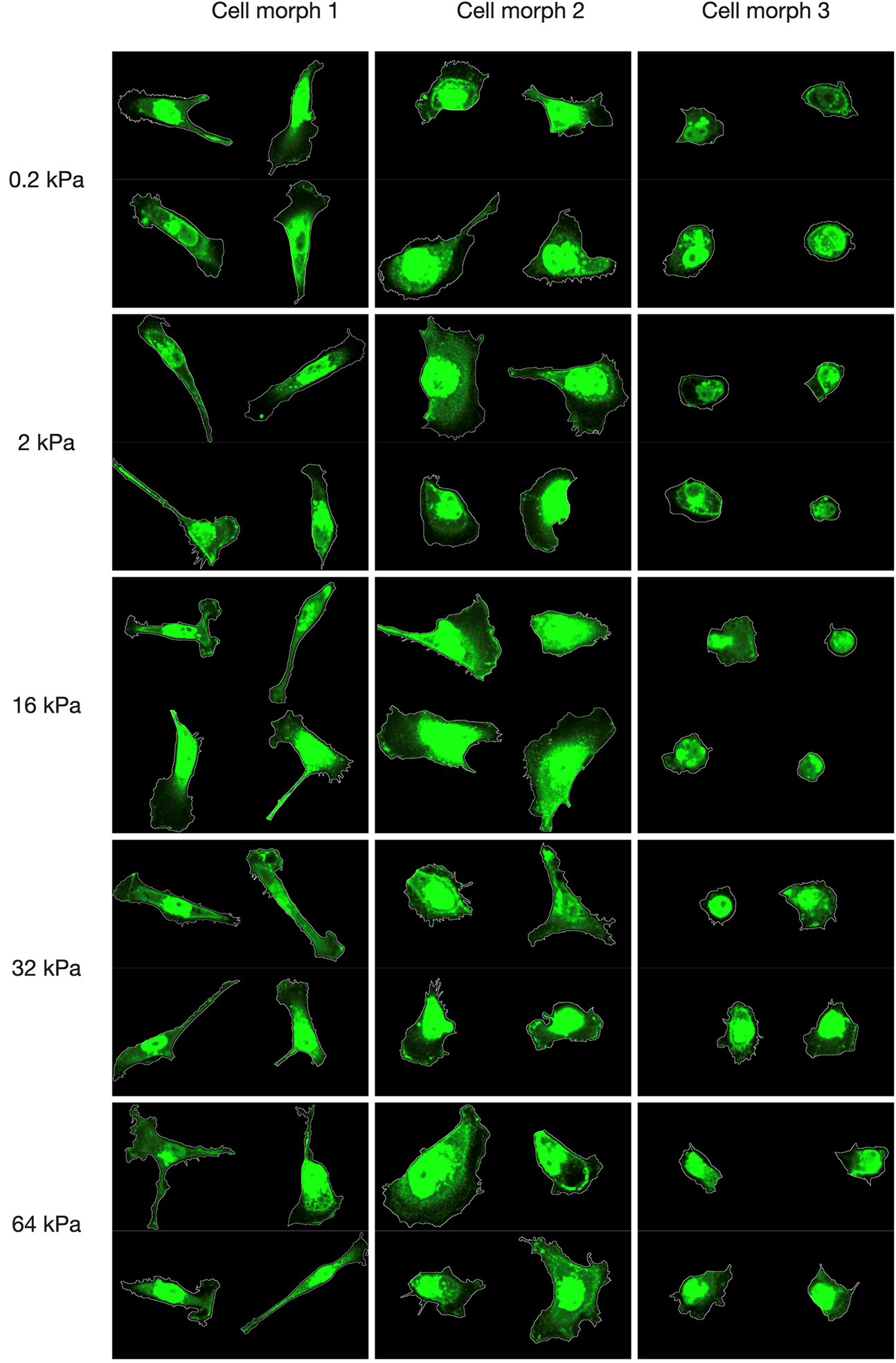Matrix Stiffness Affects Breast Carcinoma
07/28/21
Publication Title:
Machine Learning Reveals Mesenchymal Breast Carcinoma Cell Adaptation in Response to Matrix Stiffness
Advanced BioMatrix Products Used:
CytoSoft® PDMS Soft Substrate Plates
VitroCol® Human Type I Collagen
How the products were used:
CytoSoft® Plates (soft substrate 6-well plates with a thin layer of PDMS of a specific stiffness, including 0.2, 0.5, 2, 8, 16, 32 and 64 kPa) were used to evaluate the affect of matrix stiffness on mesenchymal breast cancer cells. The ECM Select® was used to determine the optimal extracelluar matrices for coating the plates. For this study, VitroCol® human type I collagen was determined to be the best substrate for cell attachment.

Article Conclusion:
"We found that mesenchymal breast cancer cells responded to different substrate stiffness by morphological adaptation, changes in proliferation rate and cytoskeleton markers such as cell-cell adhesion protein E-cadherin. Surprisingly, the cell properties on the stiffest tested substrate that mimicked bone stiffness changed dramatically–they formed multicellular clusters with distinct E-cadherin localisation at the cell-cell adhesion surfaces. Our results suggest that the stiffest microenvironment can induce cell transitioning from mesenchymal to epithelial cell phenotype."
Link to the publication:
https://journals.plos.org/ploscompbiol/article?id=10.1371/journal.pcbi.1009193



